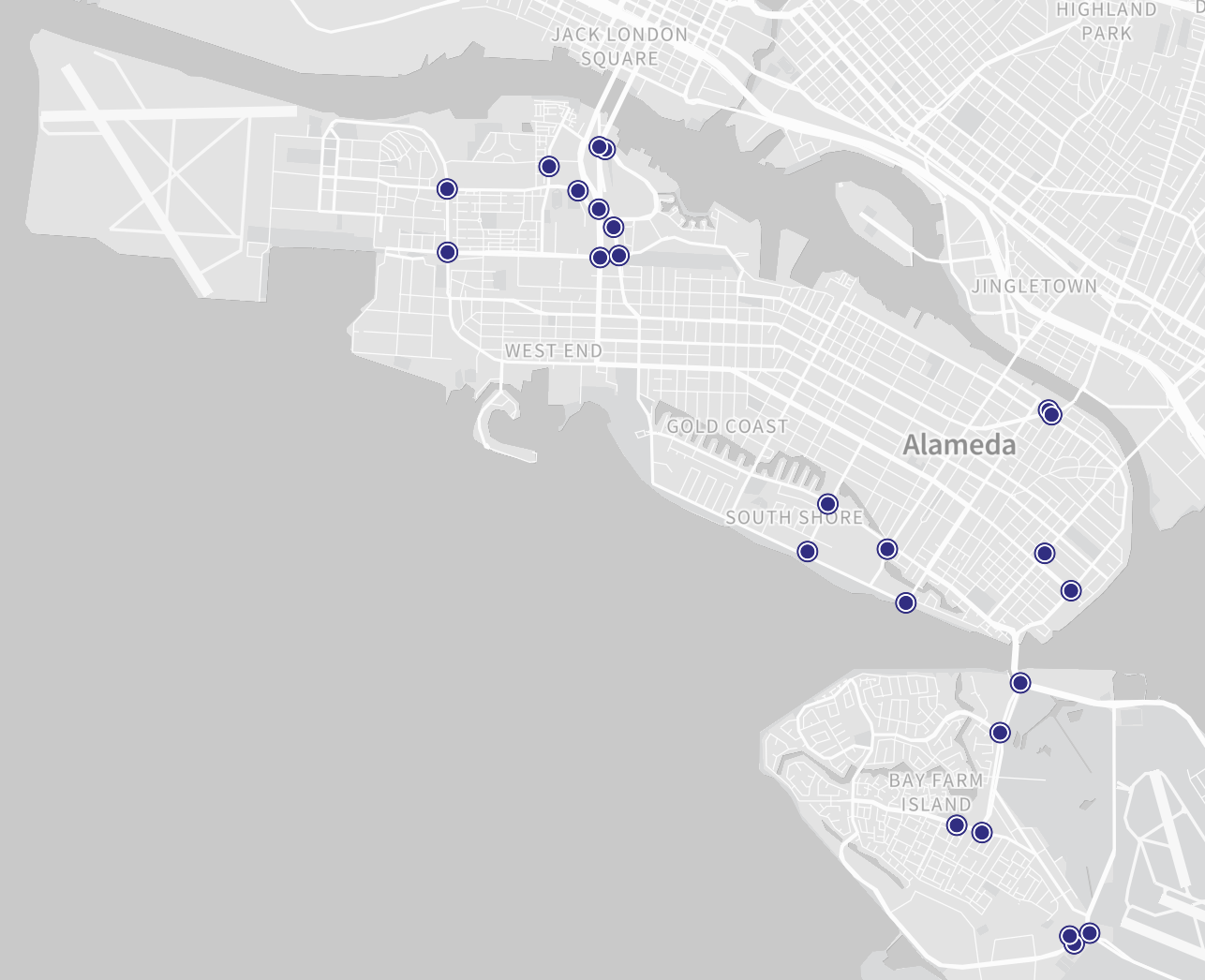If a Martian landed in Alameda, they'd have many questions. Among those questions, they might eventually ask Earthling, why is it that your armed law enforcement personnel are allowed to mount cameras that automatically read license plates on all passing cars, however your transportation personnel are banned under California state law to use similar cameras to issue tickets to humans who are driving their motor vehicles substantially higher than the posted speed limit and potentially crashing into little Earthlings and elderly Earthlings with dangerous kinetic force? The Martian would be right that state law makes no sense in this regard.
An opportunity to clear up this unfortunate incongruity is sitting on Governor Newsom's desk. (This is progress since last year, when the Assembly appropriations committee silently killed a similar bill, even though it doesn't involve appropriating any state money.) Traffic-safety advocates are going all out to encourage the governor to sign AB 645. Newsom has a mixed record of sometimes signing and sometimes vetoing legislation that would support traffic-safety and equity outcomes. He needs all the encouragement he can get.
(Note that I've included some charts, quotes, maps that may be of interest to readers of this blog – I didn't send those to the governor :)
Dear Governor,
My family and I live in Alameda, California. We've noticed the increase in unsafe driving conditions that are part of a national trend — speeding, failing to yield, running red lights. It's dangerous, especially for children and seniors, for those on foot or bicycle, and for those who live in neighborhoods cut apart by wide arterial roads.
Please sign AB 645 so that our neighboring cities in Oakland, San Francisco, and San Jose can pilot speed cameras for traffic safety. New York City and Washington DC have already demonstrated the value of these systems. Having similar experience in California will help to add another tool to cities' traffic-safety toolkits, for cities of all sizes, including Alameda.
I do want to acknowledge that some advocates have concerns about equity and privacy for automated speed enforcement cameras. The authors of this bill and the local agencies in the pilot cities have demonstrated a genuine interest in engaging seriously with these concerns. The Bay Area also already has relevant experience with equity challenges, from automated invoicing for state-owned bridge tolls.
AB 645 is a thoughtfully-written bill that builds in local community involvement to create equitable program guidelines. The bill protects privacy by banning any facial recognition – only license plate data will be collected, and the data must be expunged after a citation is issued. Citations will be civil (not criminal) and start at just $50. Cities will be required to to reduce fines for those under the poverty line by 80% or offer community service, and reduce fines by 50% for individuals 200% above the poverty level.
–Walk San Francisco
Regarding privacy concerns, it's unfortunate that cameras for traffic safety are being held to a higher standard than cameras for police usage. The Alameda Police Department has recently installed automated license plate readers (ALPRs) — but the city's Public Works and Transportation departments are banned from installing cameras to enforce speed limits around schools or parks, as are similar departments in all other California cities.

Digital privacy is extremely important. The sponsors of this bill and the pilot cities agree that it's an important concern. These systems can be carefully deployed with privacy in mind — even more so than existing ALPRs can by police departments.
Please support safety for the most vulnerable of road users by signing AB 645.
Sincerely,
Drew Dara-Abrams